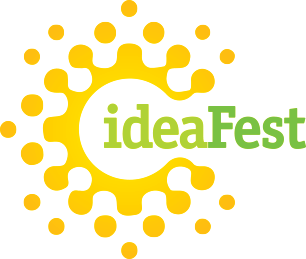May 2, 2025
Reception & Presentations 2pm to 5pm
Cal Poly Humboldt Library
Search Presenters & Abstracts
Presenters & Abstracts: Search
"Fake Feminism" - A Rhetorical Critique
Maya Habis
CRGS
Undergraduate Student
College of Arts, Humanities & Social Sciences
By utilizing a critical Feminist approach, I will illustrate how Visa's commercial series "Money Is Changing," attempts to portray Visa as a Feminist company, but ironically reinforces the very same ideologies, stereotypes, and norms that ground gender inequality.
Humboldt Unitarian Universalist Fellowship Impact on Community
Kyle Groben, Jordan Stevens, Lillyanne Price
Religious Studies
Undergraduate Student
College of Arts, Humanities & Social Sciences
The Humboldt Unitarian Universalist Fellowship in Bayside is an all inclusive religious organization with a focus on fostering healthy relationships between all beings and the world we live in. HUUF has multiple committees through which they address different aspects of intersectional issues. In this poster we will compile the three separate emphasises of our service learning experience through the HUUF which are: children’s religious education, providing services to the homeless, and sharing the importance of native plants with the congregation. We will share what we learned from our experience, how that deepened our understanding of Religion in America, and how we served the community.l
Deliberative Democracy for Climate Resilience: Can this Make a Difference?
Mustafa Khan
Political Science
Undergraduate Student
College of Arts, Humanities & Social Sciences
Considering how climate change is an ongoing issue, the basis of the project will explore the concept of deliberative democracy and it's potential effects on climate resilience. Deliberative democracy essentially focuses on how citizens engage with issues and the deliberation aspect of it can help make otherwise complicated political issues easier to comprehend. The research for this project will include a forum on this topic at HSU as well as an analysis of countries employing this strategy and its effectiveness.
Indigenous Education Through Acts Of Art
Alisa Ibyadullin
Art
Undergraduate Student
College of Arts, Humanities & Social Sciences
This poster illustrates how the younger generations of Ingenious peoples can use art in order to educate and reach out to younger, unknowledgeable generations throughout the United States on the history of Native Americans culture.
The Quapaw Tribe and Tar Creek Superfund site
Jami (Danielle) Henry
Environmental Studies
Undergraduate Student
College of Arts, Humanities & Social Sciences
The Quapaw tribe has been detrimentally impacted by the Tar Creek mines. These mines have now turned into a Superfund site. However, the issues surrounding near by water source contamination is still negatively impacting this tribe specifically in regards to health and food sovereignty.
Twitch: Social Currency
Allison Iafrate
English
Undergraduate Student
College of Arts, Humanities & Social Sciences
Twitch.tv is an online streaming platform where gamers can record their game-play and commentary in a live setting, while interacting with their viewers. Streaming has the potential to create an intimate setting where people who enjoy videogames can come together to share their interests. How much of that social interaction, though, is directly linked to users spending their money? This ongoing research project investigates the ways in which Twitch uses the appeal of social rewards (such as friendship, happiness, and community bonding) to promote the spending of economic capital.
Nifty Fifty Ain't So Thrifty- Privileges and Challenges of Locavore Diet in Arcata
Aidan Belleau
Environmental Studies
Undergraduate Student
College of Arts, Humanities & Social Sciences
A locavore diet aims to consume only foods that have been grown and produced typically within 100 miles of where you live (I chose to do 50 miles). Localism offers community-based solutions to global problems like fossil fuel dependency, carbon emissions, and single-use plastics while attempting to remove the individual from global markets, transnational free-trade agreements, and socio-economic exploitation of labor. This project reflects on the personal privileges and challenges with participating in a strict 50-mile diet in terms of economic viability, dietary habits, and accessibility to luxury ingredients (such as sugar, spices, and beer).
Nonverbal Communication In Charlie Chaplin's Modern Times
Greg Childs
English
Undergraduate Student
Braeden Delome
Communication
Undergraduate Student
Jordan Hindo
Sociology
Undergraduate Student
College of Arts, Humanities & Social Sciences
This project is a analysis of the nonverbal communication in the film Modern Times. The analysis is based on theories from Comm 324 Nonverbal Communication and include the use of physical space, gestures and facial expressions to communicate meaning.
Rhetorical Genre Theory and Whiteness
Greg Childs
English
Undergraduate Student
College of Arts, Humanities & Social Sciences
Whiteness is the foundation on which academia is built. It shapes the institutions and methods of knowledge making that form what we call education. If we hope to make radical, meaningful change to our systems of learning and knowledge, a critical step will be decentering whiteness. This project uses the work of James Baldwin to conceptualize whiteness and examines rhetorical genre theory as an example of the ways academia's systems of knowledge making are based in the assumptions of whiteness.
“Appropriate Technology in a University Setting: Table top game for change”
Karina Coronado
Environmental Studies
Undergraduate Student
College of Arts, Humanities & Social Sciences
“Appropriate Technology in a University Setting: Table top game for change”
Alternative Technology(AT) has the potential to empower communities in the U.S. to explore the possibility of non-capitalist means. This AT board game attempts to be inclusive of varied learning styles and academic disciplines, while providing a baseline understanding of the varied technologies located at CCAT. This encourages the campus understanding of CCAT, further extending the invitation of a interdisciplinary and multi-adaptable resource for the community. Exploring affinities between community leadership and AT’s, reveals areas of overlap among the social and ethical approaches of these dynamics.
